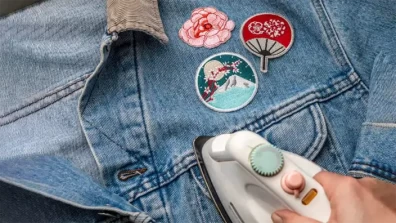In the intricate dance of relationships, creating a sense of longing and making an avoidant partner miss you can be a delicate art. In this article, we will explore subtle yet impactful strategies for you to cultivate space, intrigue, and emotional connection, ultimately fostering an environment where an avoidant individual might find themselves yearning for your presence. Understanding the psychology of avoidance and implementing thoughtful techniques can pave the way for a deeper connection and a yearning that transcends the boundaries of avoidance.
Table of Contents
- A Brief Overview Of Avoidant Attachment
- Signs Of Avoidant Attachment Style
- Ways To Make An Avoidant Miss You
- Bringing Back An Avoidant Partner: Effective Strategies
- 1- Understand Avoidance
- 2- Self-Reflection
- 3- Give Them Space
- 4- Focus On Yourself
- 5- Open Communication
- 6- Be Patient
- 7- Show Consistency
- 8- Find Common Ground
- 9- Address Concerns
- 10- Seek Professional Help
- 11- Boost His Ego
- 12- Make Them Feel Secure
- 13- Stay Patient, Avoid Conflict
- 14- Soft Approach: Practice Patience
- Signals Of Love From An Avoidant Partner
- Frequently Asked Questions
- Conclusion
Opposite to anxious attachment, the avoidant attachment style gives you completely different feelings of seclusion and solitude. Even the loveable feelings you have had before for the person who is avoiding you now, hurt you every time. In anxious attachment, you are anxious to communicate with the person you love but in a style of avoidant attachment, you want others to express how much uneasy he is being away from you.
Understanding the type and depth of the relationship with your avoidant ex is crucial in devising strategies to make them miss you.
Avoidant individuals are known for creating emotional distance in relationships, impacting their likelihood of missing their ex-partner. The probability of an avoidant person missing an ex varies based on factors like attachment style, breakup reasons, and emotional growth.
Initially, avoidant partners might feel relief post-breakup due to the removal of emotional intimacy. However, over time, some may experience a sense of loss or nostalgia for the positive aspects of the relationship.
Whether avoidant partners return after a breakup is variable. Some maintain distance, while others may revisit the relationship if they perceive their need for independence can be fulfilled within it. Emotional growth, self-awareness, and addressing relationship challenges play significant roles in this decision.
It's important to acknowledge individual diversity; there's no one-size-fits-all answer. Open communication and mutual understanding are pivotal in navigating potential reconnections.
In close relationships, partners often fear saying or doing anything that may hurt each other. However, insecurity can lead to avoidance when secure bonds with caregivers are lost.
1- Sense Of Independence
Lack of commitment causes a short span of relationships. They take care of themselves and give importance to their sense of independence. They are in a bent of mind that if they express theiraffection to their partner, the other will assume them as “needy.” But on the other side, it doesn’t mean that they don’t want to have some kind of relationship with someone. It is a fact that mutual independence helps great in keeping the relations healthy mode, but you need to distinguish between the partner and your leisure pursuit.
2- Overcoming Emotional Distance
Avoidant individuals tend to inhibit social interactions and are less expressive, often avoiding sharing their feelings openly. This behavior stems from a personality trait rather than a disorder, leading them to feel agitated and struggle with self-expression. In relationships, it's crucial to learn to communicate affectionately despite these challenges.
3- Fear Of Intimacy
It has become a culture amongst youth that they are apprehensive about getting serious in relationships. They simply want to have friends just to spend time in a carefree manner. This is called enjoyment for them, but they are scared of making commitments or taking responsibility seriously as they feel it is like a pain.
Ways To Make An Avoidant Miss You
The key quality leading to healthy relationships is that there should be a comfortable space between the partners. They are a kind of temperamental personality who feel imprisoned when the other person questions them a lot which can make them fed up with the confined tie-up. The moment you feel your avoidant getting distant, you pay him respect while giving him free time to ponder over the correlation and back to you. However, it is not easy giving them space as it gets you to tie in the interrelation stronger than before.
But now the question arises how can you give space to your avoidant? It can be done only by limiting your communication and also a bit staying away from the daily association. Be mindful, and don’t panic while giving others space, you need to take very care of yourself by watching movies, having get-togethers with friends, or visiting the city. In your absence, the avoidant gets fonder and starts wondering about the time you two have been spending together in a love bond.
1- Stop Patching Up Communicating
This is the world-acknowledged fact in every culture that withdrawing or stepping back makes the avoidant miss you. Seeing you quiet or staying a bit away makes the other wonder why. Curiosity leads them to think and to call you first. This time you need to prevent yourself from massaging though you are in severe perturbation and let him take the first move.
Somehow it happens that the post you tag on social media, your avoidant can perceive the message as you are communicating to him. It’s a great way to show that you are simply looking over him when you avoid posting about your feelings or activities. On the other hand, your avoidant is also avoiding sharing about yourromantic relationships or breaking up in public via social media.
Sitting and prattling with friends cast a vivid reflection on your avoidant that you are not wholly dependent on him. Spending healthy time with your family and friends nurtures your relationship with a happy and gay mood. So, making plans to spend healthy time with friends invigorates your healthier relationship. Though you need not post your feelings, state of mind, or other activities on social media, you can share your photos having to assemble with fellows on social media and try to make them visible to your avoidant.
4- Revive Your Best Life
Avoidants are independent people, and they want to have an independent partner, so focus on the things that please you most. Before you start loving your partner, you need to love yourself first for that you should practice self-care like eating your cherished food, treating friends and fellows, visiting the places you feel comfortable there, or doing exercise to stay fit and healthy. Additionally, you should pursue your hobbies as given below.
- Practicing musical instruments
- Join a sports team
- Hiking, skiing, or skateboarding
- Attending a painting class
- Writing some poetical lines on your state of mind
- Working in animal rescuing
- Attending some improvement workshops
- Spending time pruning or weeding out your lawn
- Vlogging or making short movies
- Cooking some new cosines
- Penning down your souvenirs
5- Pretending To Move On
Taking a step forward towards a new life makes you seem way far from the reach of your avoidant’s hand. You seem to be out of his reach. In this way, the other person might think that he has made a mistake thinking you are dependent on him. The best way to pretend to avoid someone is to avoid your past, so focus on the present, and think about the future.
For a lively routine, share the news with your friends and family members about how your days seem to be going. You can do so by cooking some new recipes or painting something cool and beautiful on your first try. But the most important thing you should be cautious about is not to go on dates to make your avoidant jealous.
Bringing Back An Avoidant Partner: Effective Strategies
Reconnecting with an avoidant partner requires a delicate approach. Here are steps to consider:
1- Understand Avoidance
Gain a deep understanding of avoidant attachment styles. Recognize their need for independence and space and appreciate that they may be uncomfortable with emotional intimacy.
2- Self-Reflection
Reflect on your own emotions and expectations. Ensure your desire to draw them back is based on healthy motivations rather than a fear of being alone.
3- Give Them Space
Respect their need for space. Pressuring or stifling an avoidant partner can push them further away.
4- Focus On Yourself
Concentrate on personal growth and self-improvement. Demonstrating that you are living a fulfilling life independently can be attractive to avoidant individuals.
5- Open Communication
Initiate open and honest communication. Share your feelings and express a willingness to understand their perspective. Be calm, non-confrontational, and empathetic.
6- Be Patient
Building trust with an avoidant partner takes time. Be patient and allow them to come to their conclusions about reconnection.
7- Show Consistency
Demonstrate consistency in your actions. Show that you respect their boundaries and are committed to a healthy relationship dynamic.
8- Find Common Ground
Identify shared interests or activities that can bring you together. This helps in creating positive shared experiences.
9- Address Concerns
If specific issues were leading to the avoidance, address them constructively. Show a commitment to resolving conflicts healthily.
10- Seek Professional Help
If the situation remains challenging, consider seeking the guidance of a relationship therapist. A professional can provide valuable insights and facilitate communication.
Remember, every individual and relationship is unique. While these steps offer a general guide, it's crucial to be attuned to the specific dynamics of your relationship. Patience, empathy, and a genuine commitment to understanding each other are key elements in drawing an avoidant partner back.
11- Boost His Ego
There is another reason your partner avoids you is that he doesn’t feel fit for you. Here you need to play a vital role in boosting the ego of your partner through that you will find him insanely attracted to your love. For that, you need to speak nicely whatever situation occurs.
As you are guided to have a get-together assembling with your mutual friends and sharing about him don’t look over telling him that your boyfriend is a gem of a person. Your compliment for considering him as your biggest cheerleader pregnant with affection and honor for him will lift his confidence.
12- Make Them Feel Secure
After observing that your avoidant is less confident, and he feels insecure regarding his relationship with you. He also faces criticism and easily gets hurt. This is the most sensitive stage where you need to counteract his state of mind, you should make him feel valued by expressing your love and concern in compliments off and on. Compliments should be the way of sincerity and probity like this:
- “Great! You’re a genius.”
- “It was the quality time I spent with you.”
- “You’re blessed with a great sense of humor.”
- “Wow! Looking amazing today.”
- “This color suits your complexion.”
13- Stay Patient, Avoid Conflict
If you keep on clinging to the avoidant every time, he might start feeling uneasy around you. In this situation, he can shut down. So, you should let your partner in the relationship take the initiative and make a head start, so things can go at the rate they should. It may seem like you’re trying to stay a step back and this will make the relationship move in a better path. The avoidant will start to feel relaxed in such a relationship.
If, in any case, you should not make him feel uncomfortable in such a relationship, try going out to spend time with any of your close friends and notify him or her about the situation you are in.
14- Soft Approach: Practice Patience
The avoidants need a lot of time to express their feelings to someone. They always feel rejected or dejected by the person they are in love with, so they need space. They take a few steps back several times until he assembles himself and feels secure. Don’t take a step and get fed up with the next moment – pursue him to make him realize how valued he is for you.
Signals Of Love From An Avoidant Partner
1- Serious Relationship
The person who distances you often prefers temporary relationships to prolonged, ever-lasting partnerships. If you see him coming back to you after being pulled away, he likely loves you insanely. An avoidant needs time to get into a serious relationship for that you need to sit together for couples’ counseling.
2- Affectionate Gestures In Public
As the avoidant lacks confidence and is uncomfortable with commitment, your avoidant is hesitant to show affection about you in public like if he hugs or kisses you openly. It means that he’s likely to love you undoubtedly.
3- Comfortable Emotions
A person who is distant is cold in manners. If you see your avoidant in serious conversations about you without being nervous. He is found overly loving you with an emotional tone which means he is turning back to you.
Frequently Asked Questions
How Long Does It Take For An Avoidant To Miss You?
There is no prescribed time you require to pursue your avoidant turning back to you but usually it takes right around 2.5 months to get out of the tension and make your partner miss you. This is a delicate tightrope you need to walk on very keenly and softly without getting hyper or Confrontational. Otherwise, any wrong action due to overly anxious behavior will lead him far away from you and there is no chance of getting back to you.
Do Avoidants Come Back After Distancing?
Due to some cause of insecurity, self-doubt, and lack of self-confidence, he ignores the importance of your presence and your efforts of pretending to be independent pop him again to you later- Yes, it’s true. In some cases, the avoidants come back but on the contrary in some cases, they feel a sense of relief and freedom, and they move on quickly.
What Do Avoidants Find Attractive?
Avoidant individuals often find certain qualities and characteristics attractive to potential partners. These may include:
- Avoidants appreciate partners who have a strong sense of independence. Individuals who can maintain their own lives, interests, and friendships without relying solely on relationships.
- Respect for personal space and boundaries is crucial for avoidants. Partners who understand and honor their need for alone time or emotional space are often more appealing.
- Avoidant individuals may be drawn to partners who exhibit emotional stability. Handling stress and conflicts calmly without excessive emotional intensity can be attractive.
- Avoidants value partners with effective communication skills. Clear and open communication, especially about emotions and needs, can contribute to a healthier relationship dynamic.
- Finding common interests can be a bonding factor. Shared activities or hobbies create positive connections without the need for intense emotional expression.
- Being flexible and adaptable in various situations can be appealing. Avoidants may appreciate partners who can navigate changes without causing unnecessary stress or conflict.
- It's important to note that while these traits might be generally attractive to avoidants, individuals are diverse, and personal preferences can vary. Building a healthy relationship involves mutual understanding, effective communication, and a willingness to work together to meet each other's needs.
Conclusion
In conclusion, making an avoidant miss-you is a nuanced endeavor that involves a delicate balance of understanding, patience, and self-improvement. By recognizing and respecting their need for independence, giving them space, and focusing on their own growth, you create an environment that may draw them back. Open communication, consistency, and addressing any underlying issues contribute to fostering a connection that transcends the barriers of avoidance. Remember, every person is unique, and success in making an avoidant to miss you lies in genuine efforts, empathy, and a commitment to building a healthier and more fulfilling relationship.























